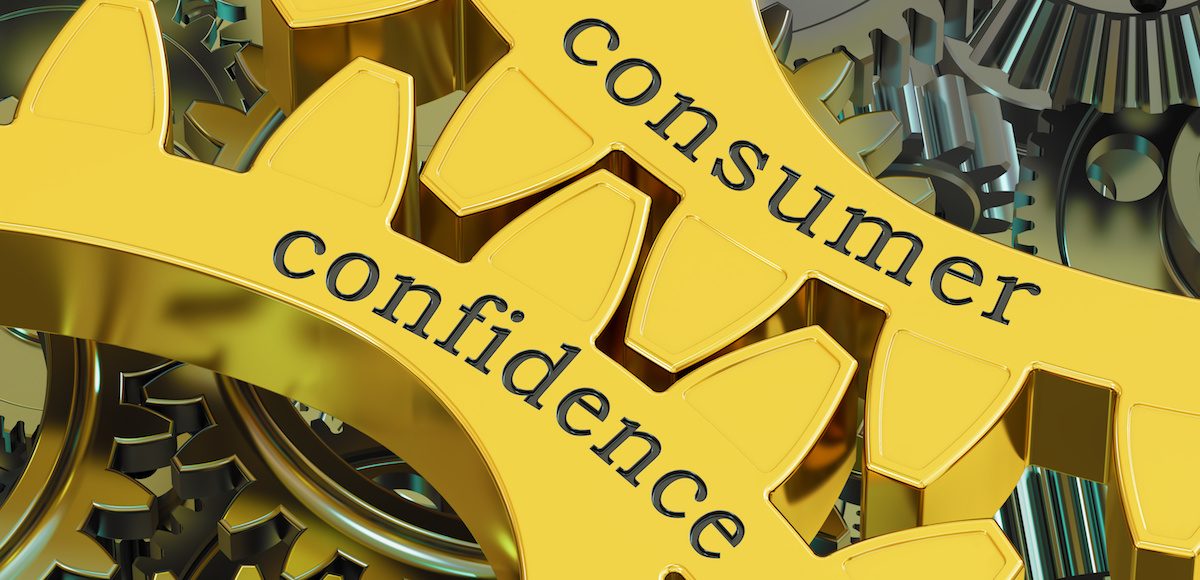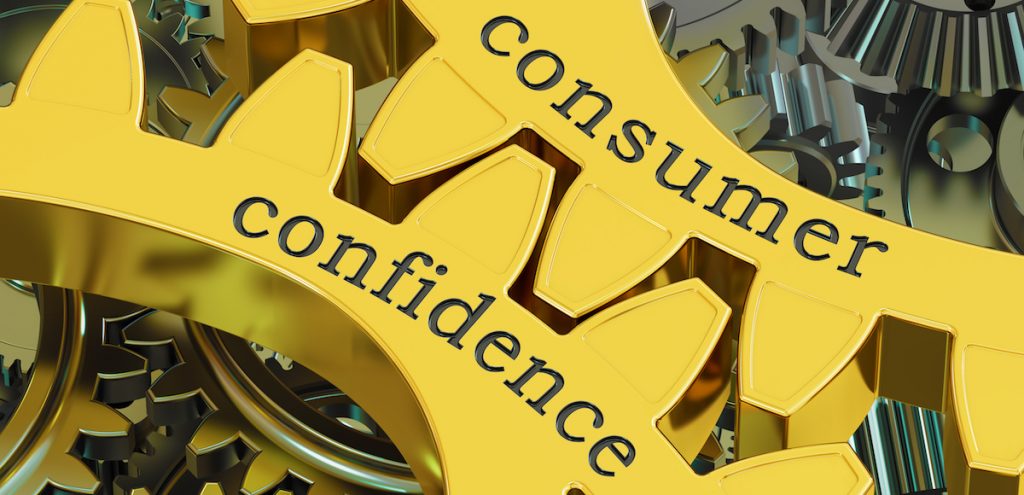
At 120.2, Expectations Index Drove Decline

The Conference Board Consumer Confidence Index declined in January to 120.2 (1985=100), a still elevated reading that missed the consensus forecast.
Forecasts ranged from a low of 119.1 to a high of 129.0, with the consensus at 124.3. It follows a decline in December, but was somewhat expected and most likely temporary.
“Consumer Confidence declined in January, following a decrease in December,” said Lynn Franco, Senior Director of Economic Indicators at The Conference Board. “The Present Situation Index was virtually unchanged, suggesting economic conditions remain favorable.”
“Expectations, however, declined sharply as financial market volatility and the government shutdown appear to have impacted consumers.”
The Present Situation Index – which measures consumers’ assessment of current business and labor market conditions – declined only marginally, from 169.9 to 169.6.
The Expectations Index – which gauges consumers’ short-term outlook for income, business and labor market conditions – declined from 97.7 last month to 87.3 this month.
“Shock events such as government shutdowns (i.e. 2013) tend to have sharp, but temporary, impacts on consumer confidence,” Franco added. “Thus, it appears that this month’s decline is more the result of a temporary shock than a precursor to a significant slowdown in the coming months.”
Consumers’ views of current conditions remain positive and were little changed in January.
The percentage of consumers claiming business conditions are “good” was essentially unchanged at 37.4 percent, while those saying business conditions are “bad” actually decreased from 11.6 percent to 11.1 percent.
Consumers’ assessment of the labor market was mixed.
Those stating jobs are “plentiful” rose from 45.5 percent to 46.6 percent, while those claiming jobs are “hard to get” also rose, from 12.2 percent to 12.9 percent.
Not surprising, given events and coverage of those events, consumers were less optimistic about the short-term future in January.
The percentage of consumers expecting business conditions will improve over the next six months ticked down from 18.1 percent to 16.0 percent, while those expecting business conditions will worsen moved higher from 10.6 percent to 14.8 percent.
Consumers’ outlook for the labor market was also less optimistic.
The proportion expecting more jobs in the months ahead decreased from 16.6 percent to 14.7 percent, while those anticipating fewer jobs increased, from 14.6 percent to 16.5 percent.
Meanwhile, the percentage of consumers expecting an improvement to short-term income prospects fell from 22.4 percent to 18.2 percent. However, the proportion expecting a decrease also fell, from 7.6 percent to 7.1 percent.
About the Consumer Confidence Index
The monthly Consumer Confidence Survey is based on a probability-design random sample, is conducted for The Conference Board by Nielsen, a leading global provider of information and analytics around what consumers buy and watch. The cutoff date for the preliminary results was January 17.



